The Pros and Cons of Centralized vs. Decentralized Wallets
In the ever-evolving world of cryptocurrency, choosing the right wallet can feel like navigating a maze. With the rise of digital currencies, users are faced with a crucial decision: should they opt for a centralized wallet or a decentralized wallet? Each option has its own set of advantages and disadvantages, and understanding these can make all the difference in how you manage your digital assets. This article delves deep into the pros and cons of both wallet types, providing insights that can help you make an informed decision about your cryptocurrency management.
Centralized wallets are like the friendly neighborhood bank of the cryptocurrency world. Managed by third-party services, they offer users a level of convenience and ease of access that can be incredibly appealing, especially for beginners. Imagine having a digital wallet that you can access with just a few clicks, where all your transactions are handled for you. Sounds great, right? However, this convenience comes with its own set of risks. When you hand over control of your assets to a third party, you also surrender a degree of security and control. It’s a bit like trusting someone else to hold onto your valuables—there’s always a risk involved.
On the flip side, decentralized wallets are akin to having your own personal vault. They empower users by eliminating intermediaries, allowing for complete control over funds. With a decentralized wallet, you manage your private keys, which means you hold the keys to your financial kingdom. This setup enhances security and privacy, making it a popular choice among seasoned crypto enthusiasts. However, it’s essential to recognize that with great power comes great responsibility. Users must navigate the complexities of managing their wallets and ensuring they don’t fall victim to user errors that could lead to lost funds.
When it comes to security, centralized wallets often boast robust measures to protect user assets. Features like two-factor authentication and encryption are commonplace, aiming to provide a safety net for users. However, the reliance on third-party services introduces potential vulnerabilities. If the provider suffers a security breach or hack, your funds could be at risk. It’s like living in a gated community; while there are security measures in place, the gates can still be breached.
Despite their security features, centralized wallets can be prime targets for hackers. High-profile breaches have made headlines, leading to significant losses for users. The question then becomes: is the convenience worth the risk? Users must weigh the benefits of easy access against the possibility of losing their hard-earned assets. It’s a delicate balance, and one that requires careful consideration.
One of the standout features of centralized wallets is their user-friendly interface. They are designed with beginners in mind, making it easy for anyone to dive into the world of cryptocurrency. The intuitive layout and straightforward navigation can attract new users, creating a welcoming environment for those just starting their crypto journey. However, this simplicity can sometimes come at the cost of advanced features that experienced users might desire.
Decentralized wallets shine in terms of security, as they prioritize user control. By allowing users to manage their private keys, these wallets reduce the risk of centralized hacks. It’s like having a safe deposit box that only you can access. The inherent security benefits of decentralized solutions are compelling, especially for those who value privacy and autonomy over their funds. However, users must also be aware of the need for diligence in safeguarding their keys.
While decentralized wallets enhance security, they are not without their own risks. The potential for user error is significant; losing your private key can mean losing access to your funds permanently. Unlike centralized wallets, there’s no customer service to help you recover lost assets. It’s crucial for users to understand these risks and take proactive measures to secure their wallets. Think of it as owning a luxury sports car; it’s exhilarating, but you need to know how to drive it safely to avoid accidents.
| Feature | Centralized Wallets | Decentralized Wallets |
|---|---|---|
| Control | Limited control, third-party managed | Full control, user-managed |
| Security | Robust measures, but vulnerable to hacks | High security, risk of user error |
| User Experience | User-friendly, accessible for beginners | Complex, requires knowledge of private key management |
Ultimately, the decision between a centralized and decentralized wallet boils down to personal preferences and needs. Are you a beginner looking for ease of use, or are you a seasoned user who values control and security? It’s essential to assess your requirements carefully. Consider factors such as how often you plan to transact, your comfort level with managing private keys, and how much security you need for your assets. By taking the time to evaluate your situation, you can make a choice that aligns with your financial goals.
- What is the main difference between centralized and decentralized wallets? Centralized wallets are managed by third-party services, while decentralized wallets allow users to have complete control over their assets.
- Are decentralized wallets safer than centralized wallets? Decentralized wallets offer enhanced security through user control, but they also come with risks such as potential user error.
- Can I recover my funds if I lose access to my decentralized wallet? Unfortunately, if you lose your private key, you may permanently lose access to your funds.
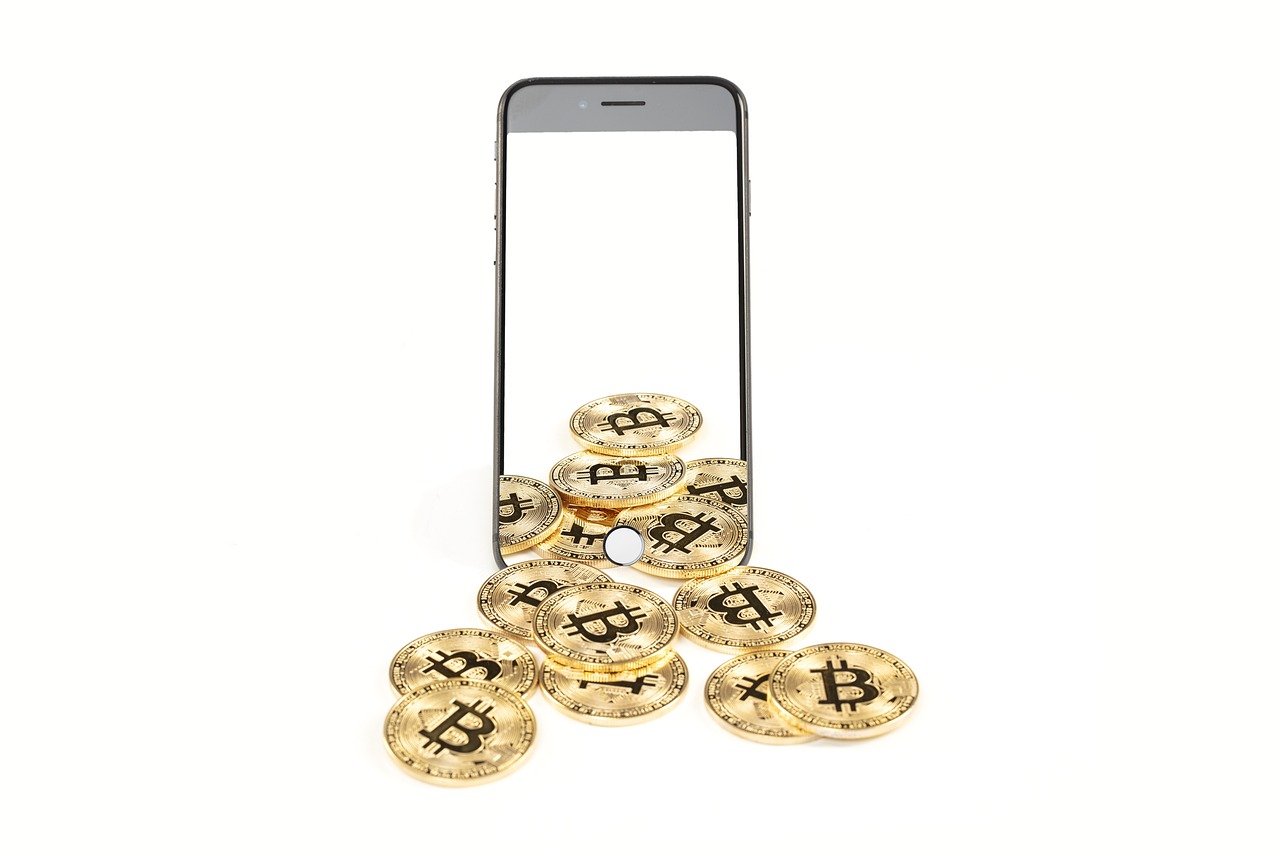
Understanding Centralized Wallets
Centralized wallets are like the friendly neighborhood banks of the cryptocurrency world. They are managed by third-party services, which means that users can enjoy the convenience of having their assets held by a trusted entity. Imagine walking into a bank where someone takes care of all the heavy lifting for you—this is the essence of centralized wallets. They provide an easy-to-use interface, allowing even those new to cryptocurrency to dive in without feeling overwhelmed.
However, while the ease of access is a significant advantage, it’s crucial to understand that this convenience comes with its own set of challenges. When you store your digital assets in a centralized wallet, you are essentially placing your trust in a third party. This means that the wallet provider holds the private keys to your assets, leaving you with less control over your funds. In a way, it’s like giving someone the keys to your house; you have to trust that they will keep your belongings safe. But what happens if they lose those keys or, worse, if they are hacked?
Centralized wallets often implement robust security measures to protect users, including:
- Two-Factor Authentication (2FA): This adds an extra layer of security by requiring a second form of verification, like a code sent to your phone.
- Encryption: Data is encrypted to protect sensitive information from unauthorized access.
Despite these security features, centralized wallets are not immune to risks. They can be prime targets for hackers, and there have been numerous high-profile breaches in the past that resulted in significant losses for users. The reality is that while you might enjoy the convenience of a centralized wallet, you must also consider the potential vulnerabilities that come with it. It’s a balancing act between ease of use and security, and each user must weigh these factors based on their personal preferences.
Moreover, the user experience in centralized wallets is often designed to be intuitive. This is particularly beneficial for beginners who may feel intimidated by the technical aspects of cryptocurrency management. With straightforward interfaces and customer support, centralized wallets can ease newcomers into the crypto space. However, this simplicity can also lead to complacency, where users may not take the necessary precautions to secure their accounts and assets.
In summary, centralized wallets offer a blend of convenience and security, but they also come with risks that users must be aware of. Understanding how these wallets operate and the implications of using them is crucial for anyone looking to manage their digital assets effectively. As we delve deeper into the world of cryptocurrency wallets, it’s essential to keep these factors in mind to make informed decisions.

Understanding Decentralized Wallets
Decentralized wallets are a game changer in the world of cryptocurrency, offering users a level of control and security that centralized wallets simply cannot match. Imagine being the captain of your own ship, navigating the vast ocean of digital assets without the need for a third-party navigator. This freedom allows you to manage your funds directly, significantly reducing the risk of losing access due to external factors.
So, how do decentralized wallets work? Unlike their centralized counterparts, which store your private keys on their servers, decentralized wallets give you full ownership of your private keys. This means that you, and only you, have access to your funds. You can think of it like having a safe in your home versus renting a safety deposit box at a bank. While the bank might offer some convenience, it also introduces a layer of risk. If the bank is hacked or goes bankrupt, you could lose everything.
One of the standout features of decentralized wallets is their emphasis on security. By eliminating intermediaries, they reduce the attack surface for hackers. Users are often encouraged to employ various security measures, such as strong passwords and two-factor authentication, to further safeguard their assets. Additionally, many decentralized wallets utilize advanced encryption techniques to protect sensitive data. This is akin to having a fortress around your digital assets, making it incredibly difficult for unauthorized individuals to breach your defenses.
Moreover, decentralized wallets enhance privacy. When you use a centralized wallet, your transaction history and personal information are typically stored on a server, which can be accessed by the wallet provider. In contrast, decentralized wallets allow users to interact with the blockchain directly, often without needing to provide personal information. This anonymity can be a significant advantage for those who value their privacy in financial transactions.
However, it's essential to recognize that decentralized wallets aren't without their challenges. While they offer increased security and privacy, they also place the onus of responsibility squarely on the user. If you lose your private key, you lose access to your funds permanently—there’s no customer service to help you recover your assets. This aspect can be daunting for newcomers who may not be familiar with the intricacies of managing their keys. It's crucial to educate yourself and take the necessary precautions, like backing up your keys in a secure location.
In summary, decentralized wallets empower users by providing greater control and security over their cryptocurrency holdings. They enable individuals to navigate the digital asset landscape with confidence, free from the constraints and risks associated with centralized services. However, with great power comes great responsibility, and users must be vigilant in managing their private keys and understanding the risks involved.
- What is a decentralized wallet? A decentralized wallet allows users to store and manage their cryptocurrency without relying on a third party, giving them full control over their private keys.
- How secure are decentralized wallets? Decentralized wallets enhance security by eliminating intermediaries and allowing users to manage their private keys directly, although users must take personal responsibility for safeguarding their keys.
- Can I recover my funds if I lose my private key? No, if you lose your private key, you will not be able to access your funds. It is crucial to back up your keys securely.
- Are decentralized wallets user-friendly? While decentralized wallets may require a bit more technical knowledge than centralized ones, many modern options have user-friendly interfaces designed to help beginners.

Security Features of Centralized Wallets
When diving into the world of centralized wallets, it's essential to understand the security features that these platforms offer. Centralized wallets, managed by third-party services, implement a variety of security measures to protect users' assets. One of the primary features is two-factor authentication (2FA). This additional layer of security requires users to verify their identity through a second method, such as a text message or an authentication app, before accessing their funds. It's like having a double lock on your front door; even if someone has your key, they still can't get in without the second form of identification.
Another significant feature is encryption. Centralized wallets often encrypt user data, making it unreadable to anyone without the proper keys. This means that even if hackers manage to breach the system, the data they access remains secure. However, it's crucial to remember that while these measures are robust, they are not infallible. Centralized wallets are still vulnerable to attacks, making it imperative for users to stay vigilant and adopt best practices.
Additionally, many centralized wallets provide insurance policies to protect users against potential losses due to hacks or other security breaches. This can offer peace of mind, knowing that if something goes wrong, there might be a safety net in place. However, it’s important to read the fine print; not all wallets offer the same level of protection, and terms can vary significantly.
Here’s a quick overview of some common security features found in centralized wallets:
| Security Feature | Description |
|---|---|
| Two-Factor Authentication | Requires a second form of verification to access the wallet. |
| Encryption | Data is encoded to prevent unauthorized access. |
| Insurance Policies | Protection against losses due to hacks or breaches. |
| Regular Security Audits | Periodic checks to identify and fix vulnerabilities. |
Despite these features, users must remain aware of the inherent risks associated with centralized wallets. While they strive to provide a secure environment, the reliance on a third party means that users are entrusting their assets to someone else. This can lead to a false sense of security; after all, if the company managing the wallet is compromised, users may find themselves in a precarious situation. Therefore, it's crucial to balance the convenience and user-friendly nature of centralized wallets with the potential risks involved.
In conclusion, centralized wallets offer a range of security features designed to protect users' assets. However, understanding these features and the risks they entail is essential for anyone venturing into the cryptocurrency space. Always stay informed, and consider your options carefully before deciding where to store your digital assets.
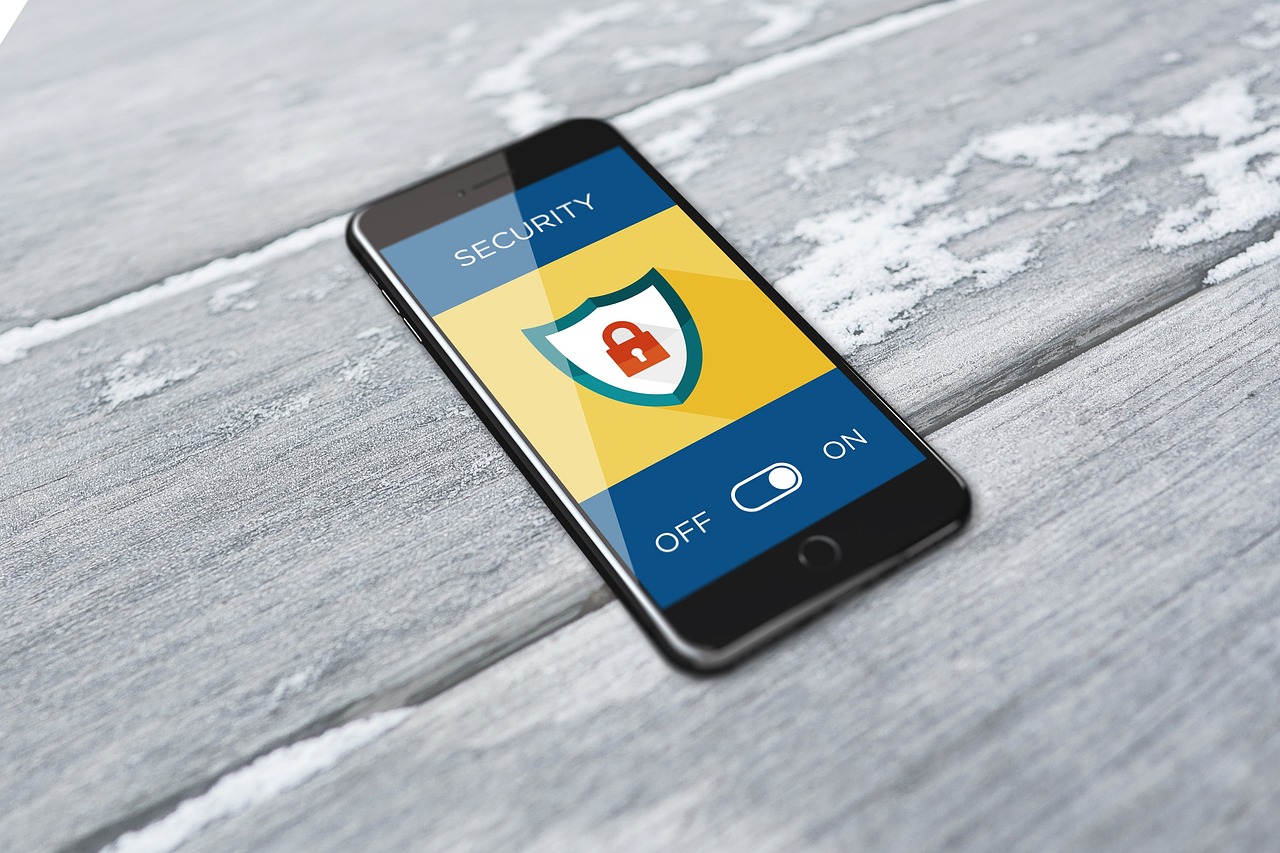
Risks of Centralized Wallets
When it comes to centralized wallets, it's essential to understand that while they offer a level of convenience, they also come with a unique set of risks that can catch even the most seasoned users off guard. One of the most significant risks is the potential for **hacks and breaches**. Centralized wallets store users' funds and private keys on their servers, making them prime targets for cybercriminals. Just like a bank vault, if a hacker can get in, they can potentially access a treasure trove of digital assets.
Moreover, because these wallets are controlled by third-party services, users are essentially placing their trust in someone else to safeguard their assets. This introduces a layer of **vulnerability**; if the service provider experiences a security breach or goes out of business, users may find themselves unable to access their funds. It's akin to handing your house keys to a stranger and hoping they don't lose them or, worse, let someone else in.
Additionally, centralized wallets often require users to complete identity verification processes, which can lead to privacy concerns. Users may feel uneasy about sharing sensitive personal information, especially given the increasing number of data breaches in recent years. This lack of privacy can deter individuals from fully engaging in the cryptocurrency space, as they may feel their information is at risk.
Another critical risk associated with centralized wallets is the potential for **service outages**. Imagine waking up one day, wanting to check your investments, only to find that the wallet service is down for maintenance or, even worse, has suffered a catastrophic failure. Such scenarios can lead to missed trading opportunities or, in dire cases, total loss of access to funds.
In summary, while centralized wallets provide an easy entry point into the world of cryptocurrencies, they come with significant risks that users must carefully consider. Balancing the convenience of these wallets against the potential for loss is crucial. Users should always ask themselves: "Am I willing to trade some control and privacy for ease of use?" The answer to that question will guide them in their cryptocurrency journey.
- What is a centralized wallet? A centralized wallet is a type of cryptocurrency wallet managed by a third-party service that holds users' funds and private keys.
- Are centralized wallets safe? While they have security measures in place, they are still vulnerable to hacks and breaches due to their reliance on third-party management.
- What are the main risks of using a centralized wallet? The main risks include potential hacks, loss of access to funds, privacy concerns, and service outages.
- Can I recover my funds if a centralized wallet service goes down? It depends on the wallet provider's policies and whether they have backup systems in place. Always check their terms of service.
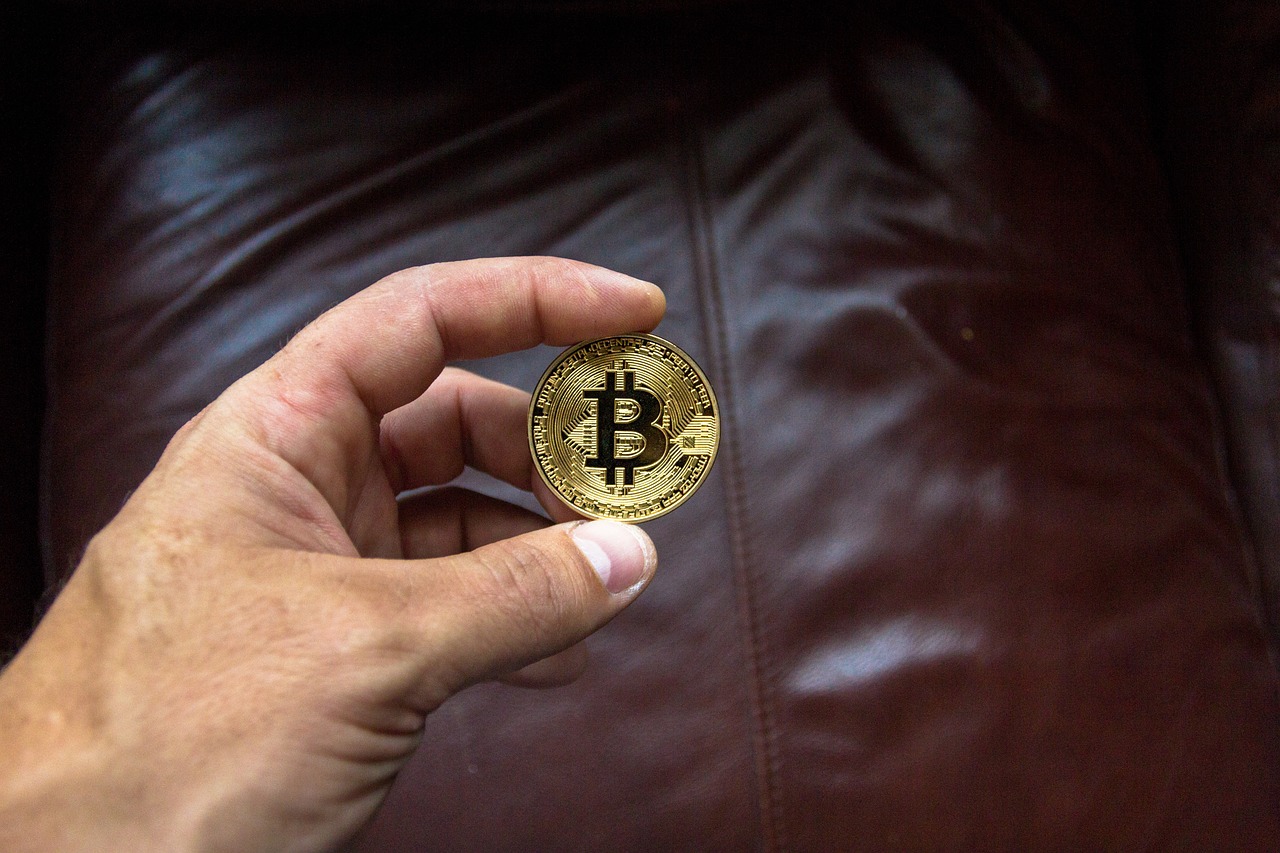
User Experience in Centralized Wallets
When diving into the world of cryptocurrency, the user experience in centralized wallets can be a game-changer, especially for those just starting out. Centralized wallets are designed with the user in mind, offering intuitive interfaces that make navigating the complex landscape of digital assets feel like a walk in the park. Imagine stepping into a well-lit, organized store where every item is easy to find; that’s what a centralized wallet aims to provide. With features such as simple login processes, quick access to funds, and straightforward transaction methods, users often find themselves at ease, even if they are not tech-savvy.
One of the standout features of centralized wallets is their ability to offer customer support. Unlike decentralized wallets, which often leave users to fend for themselves, centralized platforms typically have dedicated support teams ready to assist with any questions or issues. This can be incredibly reassuring for newcomers who might feel overwhelmed by the technical jargon and complexities of cryptocurrency management. It’s like having a friendly guide by your side as you explore uncharted territory.
Furthermore, centralized wallets often integrate with various services, allowing users to easily buy, sell, or trade their cryptocurrencies without needing to switch platforms constantly. This seamless integration can enhance the overall experience, making it feel cohesive and fluid. For example, a user might want to convert Bitcoin to Ethereum; in a centralized wallet, this can often be done in just a few clicks, whereas decentralized wallets may require multiple steps and more technical know-how.
However, while the user experience is generally positive, it's essential to consider that this convenience comes with its own set of challenges. Users must trust the centralized entity to manage their funds securely. This reliance on a third party can lead to concerns about security breaches and potential mismanagement of assets. In essence, it’s a balancing act between enjoying the ease of use and being aware of the risks involved.
In summary, centralized wallets offer a user-friendly experience that is particularly appealing to beginners. With their supportive customer service, seamless transactions, and intuitive design, they lower the barrier to entry for many users. However, it’s crucial to remain vigilant about the inherent risks that come with trusting a third party with your digital assets. Ultimately, the choice of wallet boils down to individual preferences and comfort levels with security and control.
- What is a centralized wallet? A centralized wallet is managed by a third-party service that holds and secures users' cryptocurrencies, providing a user-friendly interface and customer support.
- Are centralized wallets safe? While they offer convenience and support, centralized wallets can be vulnerable to hacks and breaches, so users should weigh the risks against the benefits.
- Can I transfer my funds from a centralized wallet to a decentralized wallet? Yes, users can transfer their funds between different types of wallets, but they should ensure they understand the process and associated fees.
- What should I consider when choosing a wallet? Consider factors such as security, ease of use, customer support, and whether you prefer to have control over your private keys.

Security Features of Decentralized Wallets
Decentralized wallets are revolutionizing the way users manage their cryptocurrency assets, primarily by enhancing security and control. Unlike centralized wallets, which rely on third-party services to manage user funds, decentralized wallets empower users by allowing them to hold their private keys. This fundamental difference is crucial because it means that users have complete control over their assets, reducing the risk of loss due to third-party failures or breaches. Imagine having a treasure chest where only you hold the key; that’s the essence of a decentralized wallet.
One of the standout security features of decentralized wallets is the use of cryptographic techniques. These wallets employ advanced algorithms to encrypt user data, ensuring that even if someone were to intercept the communication, they wouldn't be able to decipher the information. Additionally, many decentralized wallets utilize hierarchical deterministic (HD) technology, which generates a new address for each transaction. This not only enhances privacy but also makes it significantly harder for malicious actors to trace users' transaction histories.
Another vital aspect of decentralized wallet security is the concept of multi-signature (multisig) wallets. These wallets require multiple private keys to authorize a transaction, which adds an extra layer of security. For instance, a user could set up a multisig wallet that requires keys from both their mobile device and a hardware wallet, making unauthorized transactions nearly impossible. This feature is particularly beneficial for businesses or individuals who handle large amounts of cryptocurrency, as it mitigates the risk of theft.
Furthermore, decentralized wallets often provide users with the option to set up two-factor authentication (2FA). While this is also a common feature in centralized wallets, the implementation in decentralized wallets usually allows for more flexibility. Users can choose authentication methods that suit their needs, such as SMS, email, or even biometric verification. This adaptability ensures that users can tailor their security measures according to their personal preferences.
Despite these robust security features, it’s important to acknowledge that decentralized wallets are not without their challenges. Users are solely responsible for maintaining their private keys. If a user loses access to their keys, they effectively lose access to their funds. This is a stark contrast to centralized wallets, where recovery options may be available. Therefore, users must be diligent in backing up their keys and employing best practices in security.
In summary, decentralized wallets offer a suite of security features that prioritize user control and protection. By leveraging cryptographic techniques, multisig functionality, and customizable 2FA options, these wallets provide a secure environment for managing cryptocurrency. However, with great power comes great responsibility; users must be proactive in safeguarding their keys to fully benefit from the security advantages that decentralized wallets offer.
- What is a decentralized wallet?
A decentralized wallet allows users to control their private keys and funds without relying on a third party. - Are decentralized wallets safer than centralized wallets?
Decentralized wallets typically offer enhanced security features, but they require users to be more responsible for their keys. - Can I recover my funds if I lose access to my decentralized wallet?
If you lose your private keys, you may lose access to your funds permanently. It's crucial to back up your keys.
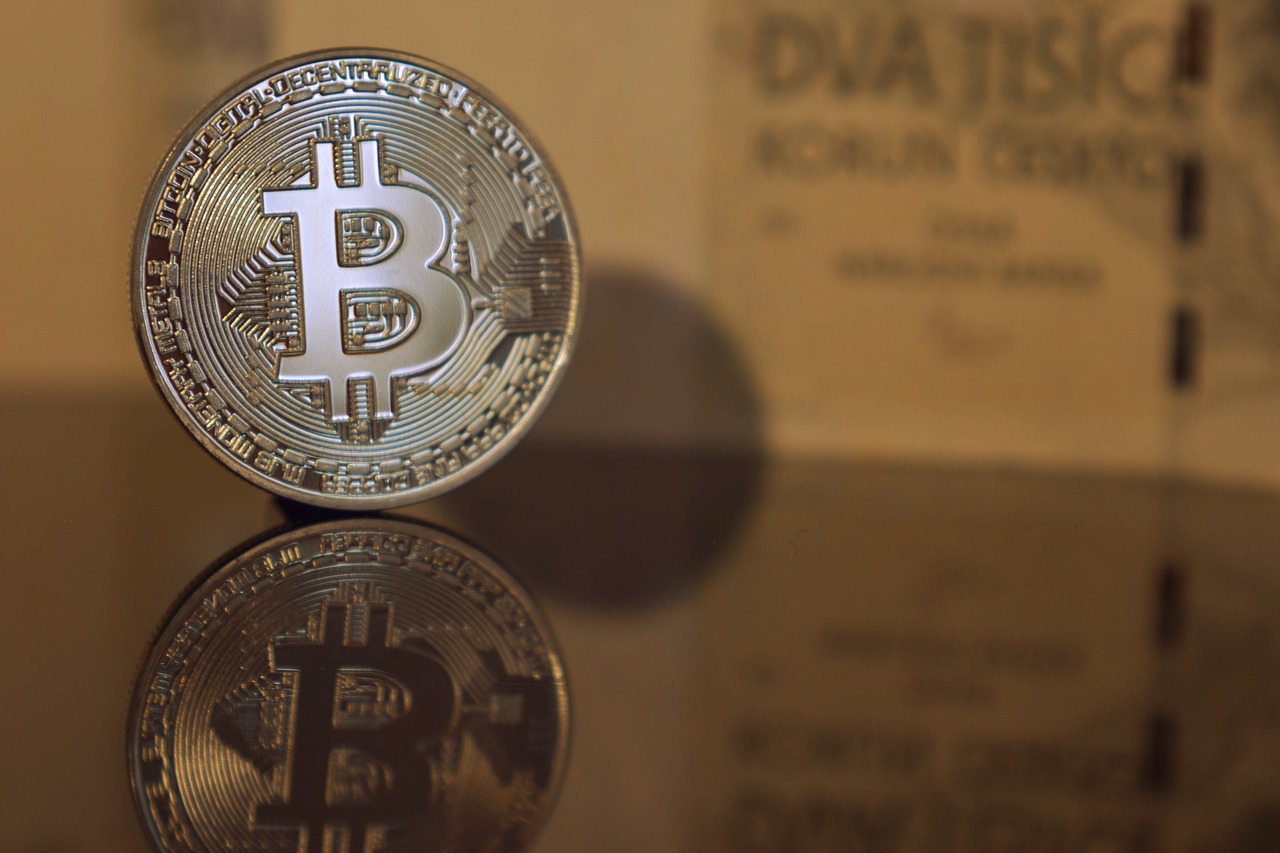
Risks of Decentralized Wallets
Decentralized wallets are often hailed as the epitome of security and user control in the cryptocurrency realm. However, they come with their own set of risks that every user should consider. Unlike centralized wallets, where a third party manages your funds, decentralized wallets put you in the driver's seat. While this sounds empowering, it also means that you bear the full responsibility for your assets. Imagine being handed the keys to a vault without any security guard; it’s thrilling, but also a bit daunting, isn’t it?
One of the most significant risks associated with decentralized wallets is the potential for user error. Since users are responsible for managing their private keys, losing them can result in permanent loss of access to funds. This is akin to losing the key to your house; once it's gone, there’s no way to get back in. Additionally, if the private key is compromised, anyone with access can drain the wallet of its assets, leaving the user with nothing. It's essential to understand that in the world of decentralized wallets, you are your own bank.
Another risk is the complexity that comes with managing a decentralized wallet. For beginners, the learning curve can be steep. Many users may find themselves overwhelmed by the technical jargon and processes involved. This complexity can lead to mistakes, such as sending funds to the wrong address or failing to back up their wallet correctly. In fact, studies have shown that a significant percentage of lost cryptocurrencies are due to user error rather than technological failure. Therefore, it’s crucial to educate yourself thoroughly before diving into the world of decentralized wallets.
Moreover, decentralized wallets are often vulnerable to phishing attacks. Since users must interact with various platforms to manage their wallets, they may inadvertently provide their credentials to malicious sites. Just like a fisherman casting a wide net, scammers are always on the lookout for unsuspecting victims. Users should remain vigilant and ensure they are using legitimate platforms and double-check URLs before entering sensitive information.
Lastly, while decentralized wallets offer enhanced privacy, this can also be a double-edged sword. The lack of regulation means that if something goes wrong, there’s often no recourse for the user. Unlike centralized wallets, which may have customer support and recovery options, decentralized wallets leave users to fend for themselves. In the event of a technical glitch or a lost key, you might find yourself in a situation where help is nonexistent. It's essential to weigh the benefits of privacy against the potential consequences of being entirely on your own.
In summary, while decentralized wallets provide a sense of independence and control, they also require a higher level of responsibility and understanding from the user. The risks of user error, complexity, phishing, and lack of support are significant factors to consider. As the saying goes, "With great power comes great responsibility." So, before you leap into the world of decentralized wallets, make sure you’re fully prepared to handle the responsibilities that come with it.

Comparative Analysis of Wallet Types
When diving into the world of cryptocurrency, it's crucial to understand the differences between centralized and decentralized wallets. Each type offers unique features that cater to different user needs, making it essential for anyone involved in digital asset management to evaluate their options carefully. So, how do these wallets stack up against each other? Let's break it down.
First, let's consider security. Centralized wallets often employ advanced security measures, including two-factor authentication (2FA) and encryption protocols, to protect users' assets. However, despite these robust measures, they are still susceptible to hacks and breaches because they rely on third-party services. On the flip side, decentralized wallets give users complete control over their private keys, significantly reducing the risk of hacks since there is no central point of failure. But, this control comes with its own set of challenges, such as the risk of losing access to funds if users mismanage their keys.
Next up is user control. Centralized wallets tend to limit users' control over their assets since the service provider holds the private keys. This can be convenient, as users don’t have to worry about managing their keys, but it also means they have to trust the provider completely. In contrast, decentralized wallets empower users by allowing them to manage their own keys, which is a double-edged sword. While this offers greater autonomy and privacy, it also places the onus of security squarely on the user.
Now, let's talk about ease of access. Centralized wallets typically boast user-friendly interfaces, making them ideal for beginners who are just dipping their toes into the cryptocurrency waters. The streamlined experience can be a significant draw for new users, as it minimizes the learning curve. In contrast, decentralized wallets can be more complex and may require a deeper understanding of blockchain technology and security practices. This complexity might deter some users, but for those who are tech-savvy, the benefits of decentralization can outweigh the initial learning challenges.
| Feature | Centralized Wallets | Decentralized Wallets |
|---|---|---|
| Security | Advanced security measures but vulnerable to hacks | User-controlled keys, reducing hack risks |
| User Control | Limited control; provider holds keys | Full control; user manages keys |
| Ease of Access | User-friendly for beginners | Can be complex; requires tech knowledge |
In summary, the choice between centralized and decentralized wallets ultimately boils down to your personal preferences and risk tolerance. If you prioritize convenience and ease of use, a centralized wallet might be the right fit for you. However, if you value security and control over your assets, you may want to consider a decentralized wallet. Understanding these differences can help you make an informed decision that aligns with your financial goals and security needs.
- What is a centralized wallet? A centralized wallet is managed by a third-party service, which holds users' private keys and facilitates transactions.
- What is a decentralized wallet? A decentralized wallet allows users to manage their own private keys, providing greater control and security over their assets.
- Which is safer: centralized or decentralized wallets? Decentralized wallets are generally considered safer because they eliminate the reliance on third-party services, reducing the risk of hacks.
- Can I lose my funds in a decentralized wallet? Yes, if you lose access to your private keys, you may permanently lose access to your funds.
- Are centralized wallets suitable for beginners? Yes, centralized wallets often have user-friendly interfaces that make them accessible for newcomers to cryptocurrency.
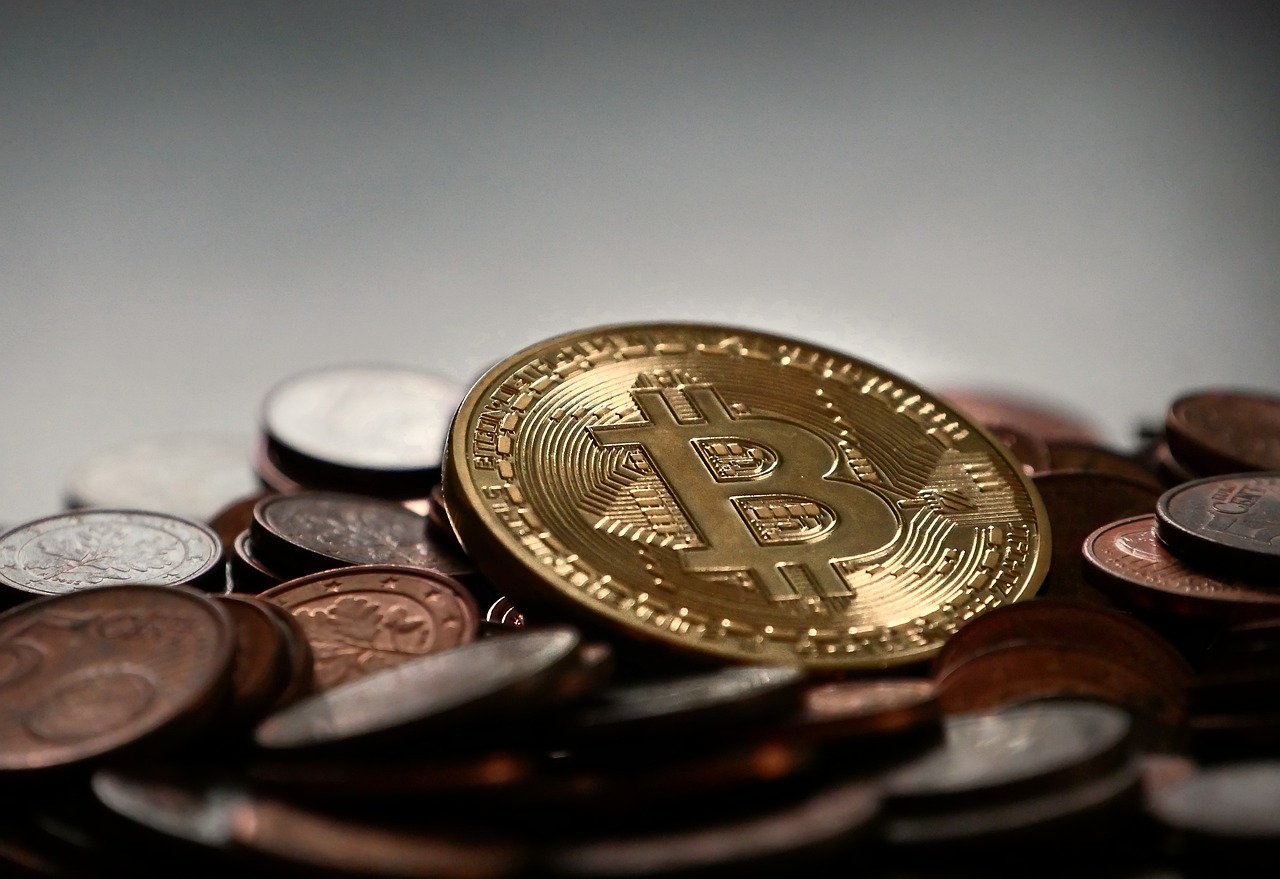
Choosing the Right Wallet for You
When it comes to managing your cryptocurrency, the choice of wallet can feel like standing at a crossroads, each path leading to a different experience. The decision between a centralized and decentralized wallet isn't just a matter of preference; it’s a reflection of your personal needs, security concerns, and how you plan to interact with your digital assets. Think of it like choosing between a bank and a safe in your home—each has its own set of advantages and disadvantages.
First, consider your level of experience. If you’re a newcomer to the crypto world, a centralized wallet might be the way to go. These wallets often come with user-friendly interfaces that make it easy to buy, sell, and manage your assets without getting bogged down by technical jargon. They typically provide features like customer support, which can be a lifesaver when you’re just starting out. However, this convenience comes at a cost: you’re placing your trust in a third party to manage your funds, which can be a double-edged sword.
On the other hand, if you’re more experienced and value control and security, a decentralized wallet could be your best bet. With these wallets, you hold the keys to your assets, meaning you have full control over your funds without relying on a third party. This can provide a sense of empowerment, but it also comes with the responsibility of ensuring you don’t lose access to your wallet. After all, if you forget your password or lose your recovery phrase, your funds could be gone forever, much like misplacing the key to your safe.
To help you navigate your options, here’s a quick comparison of factors to consider:
| Factor | Centralized Wallets | Decentralized Wallets |
|---|---|---|
| User Control | Limited | Full control |
| Security | Vulnerable to hacks | Higher security if managed correctly |
| User Experience | Generally user-friendly | Can be complex for beginners |
| Support | Customer support available | Limited or no support |
Ultimately, the right wallet for you will depend on your personal circumstances. Are you planning to hold your assets long-term, or do you intend to trade frequently? If you’re a trader, you might appreciate the speed and convenience of a centralized wallet. Conversely, if you’re looking to store your assets securely for an extended period, a decentralized wallet might provide the peace of mind you need.
Also, think about your comfort level with technology. If you’re tech-savvy and enjoy learning about blockchain technology, a decentralized wallet could be a fun challenge. But if you prefer a more hands-off approach, centralized wallets can simplify the process, allowing you to focus on your investments rather than the technical details.
In conclusion, choosing the right wallet is a personal decision that should align with your financial goals and risk tolerance. Take your time to research and evaluate your options, and don’t hesitate to seek advice from experienced users or trusted sources in the cryptocurrency community. After all, your digital assets deserve the best protection possible!
- What is the main difference between centralized and decentralized wallets? Centralized wallets are managed by third parties, offering convenience but less control. Decentralized wallets give users full control over their funds but require more responsibility.
- Are decentralized wallets safer than centralized wallets? Generally, decentralized wallets can be safer as they eliminate third-party vulnerabilities, but they require users to manage their own security.
- Can I use both types of wallets? Yes! Many users opt for a combination of both to balance convenience and security.
Frequently Asked Questions
- What is a centralized wallet?
A centralized wallet is a cryptocurrency wallet managed by a third-party service. This means that the service provider holds the private keys and has control over your funds, making it easy to access and use your digital assets. However, this convenience comes with risks, as you are trusting the provider to keep your assets safe.
- What are the security risks associated with centralized wallets?
Centralized wallets can be vulnerable to hacks and breaches since they store user information and funds on their servers. If a security breach occurs, users may lose access to their assets. Additionally, relying on a third party means that you have less control over your funds, which can be a significant drawback for many users.
- How do decentralized wallets work?
Decentralized wallets allow users to have full control over their funds by eliminating the need for intermediaries. Users manage their private keys, which means they are the only ones who can access their assets. This enhances security and privacy, as there’s no central point of failure.
- Are decentralized wallets completely safe?
While decentralized wallets offer greater control and security, they are not without risks. Users can make errors, such as losing their private keys or mistakenly sending funds to the wrong address, leading to irreversible loss. It’s crucial for users to understand these risks and take precautions.
- Which wallet type is better for beginners?
For beginners, centralized wallets may be more appealing due to their user-friendly interfaces and ease of access. They often provide features like customer support and recovery options, making it easier for new users to navigate the world of cryptocurrency. However, as users become more experienced, they might consider transitioning to decentralized wallets for added control and security.
- How can I choose the right wallet for my needs?
Choosing the right wallet depends on your individual preferences and requirements. Consider factors such as your level of experience, how much control you want over your funds, and the importance of security versus convenience. Evaluating these aspects will help you make an informed decision between centralized and decentralized wallets.
- Can I use both centralized and decentralized wallets?
Absolutely! Many users choose to use both types of wallets to take advantage of the benefits each offers. For instance, you might store a portion of your assets in a centralized wallet for easy access and use while keeping the majority in a decentralized wallet for enhanced security.



















